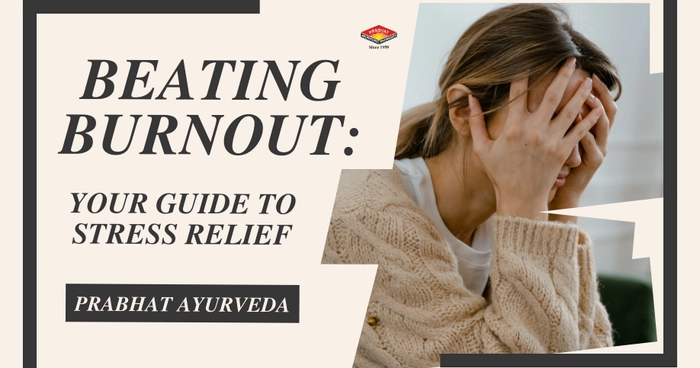Stress and Anxiety:
Stress
is a natural response to a perceived threat or demand. It triggers a "fight or flight" response in the body, releasing stress hormones like cortisol and adrenaline. In small, manageable doses, stress can be beneficial, helping you stay alert and focused. However, chronic or excessive stress can lead to negative physical and mental health effects.
Anxiety
on the other hand, is a prolonged or excessive state of worry, fear, or unease. It is a normal emotional response, but when it becomes excessive or irrational, it can interfere with daily life and well-being.
Causes of Stress and Anxiety:
Stress and anxiety can have various causes, including:
1. Life Events:
Stress and anxiety can be triggered by significant life events such as work pressures, relationship problems, financial difficulties, or major life changes.
2. Genetics:
Some individuals may be genetically predisposed to anxiety disorders.
3. Neurochemical Imbalances:
Imbalances in neurotransmitters in the brain can contribute to anxiety disorders.
4. Environmental Factors:
Stressors in the environment, like noise, pollution, or a high-pressure job, can contribute to stress and anxiety.
Ways to Avoid or Manage Stress and Anxiety:
1. Stress Management Techniques:
Techniques such as deep breathing, meditation, yoga, and progressive muscle relaxation can help manage stress and anxiety.
2. Physical Activity:
Regular exercise has been shown to reduce stress and anxiety by releasing endorphins and improving overall well-being.
3. Adequate Sleep:
Ensure you get enough restorative sleep as sleep deprivation can exacerbate stress and anxiety.
4. Healthy Diet:
A balanced diet can support mood and overall health. Avoid excessive caffeine and sugar intake.
5. Limiting Alcohol and Caffeine:
These substances can increase anxiety and disrupt sleep. You can instead try having Herbal Teas which have a soothing effect and have numerous health benefits instead.
6. Therapy:
Cognitive-behavioral therapy (CBT) and other therapeutic approaches can help address the root causes of anxiety.
7. Medication:
In some cases, medications may be prescribed by a healthcare provider to manage severe anxiety disorders.
Ayurvedic Herbs and Shilajit in Managing Stress and Anxiety:
Ayurveda, an ancient system of medicine, utilizes various herbs and practices to manage stress and anxiety. While scientific evidence is limited for some of these remedies, some individuals find relief from Ayurvedic approaches. Shilajit, as mentioned earlier, is one such Ayurvedic supplement that is believed to have adaptogenic properties. Adaptogens are natural substances that may help the body adapt to stress and maintain balance. In Ayurveda, shilajit is sometimes recommended for its potential to reduce stress and increase energy.
However, it's essential to note that individual responses to Ayurvedic herbs can vary, and more research is needed to establish their efficacy. It's also important to consult with a qualified Ayurvedic practitioner or a healthcare provider before using any Ayurvedic remedies, including shilajit, to ensure they are appropriate for your specific situation. These remedies should not replace conventional treatments for severe anxiety or stress disorders but can be complementary approaches in some cases. Always seek professional guidance when dealing with chronic or severe stress and anxiety.
Sarpagandha: (Rauwolfia serpentina)
Sarpagandha, also known as Rauwolfia serpentina, is a revered herb in Ayurvedic medicine, known for its remarkable health benefits. This powerful plant has been traditionally used to treat a variety of ailments, making it a staple in natural healing practices.
Medicinal Benefits of Sarpagandha
Sarpagandha is most famous for its ability to manage hypertension. The powdered root derivatives of this herb are a natural solution for controlling high blood pressure symptoms. It’s also beneficial for resolving health issues like asthma, diabetes, dysentery, epilepsy, and anxiety.
The plant’s antipyretic and analgesic properties make it effective in reducing high-grade fever when ingested with coconut water. Additionally, Sarpagandha has been documented in ancient Ayurvedic manuscripts for its uses in treating asthma symptoms, rectify insomnia, healing skin infections, and rectifying various nervous system and mental health woes such as panic attacks.
Chemical Composition of Sarpagandha
The chemical composition of Sarpagandha is quite complex, with the dried roots of the plant being a source of pharmacologically important alkaloids. These include reserpine, rescinnamine, deserpidine, ajmalacine, ajmaline, neoajmalin, serpentine, and α-yohimbine, among others. Reserpine is widely known for its antihypertensive and antipsychotic effects on the human system.
Precautions and Dosage
While Sarpagandha is a potent herb with numerous benefits, it’s essential to consult with an Ayurvedic doctor before taking it for any illness. The herbal formulation should only be ingested in the prescribed dosage to avert any harmful side effects. It’s important to note that higher doses can cause cardiovascular side effects, including bradycardia (slower than normal heart rate) and hypotension (low blood pressure)
Sarpagandha Tablet - 1 Tablet twice a day or as directed by the physician.
In conclusion, Sarpagandha is a powerful herb with a rich history in Ayurvedic medicine. Its ability to treat various ailments, coupled with its complex chemical composition, makes it a valuable resource for those seeking natural health solutions. However, as with any potent medicinal herb, it should be used with caution and under professional guidance to ensure safety and efficacy.



